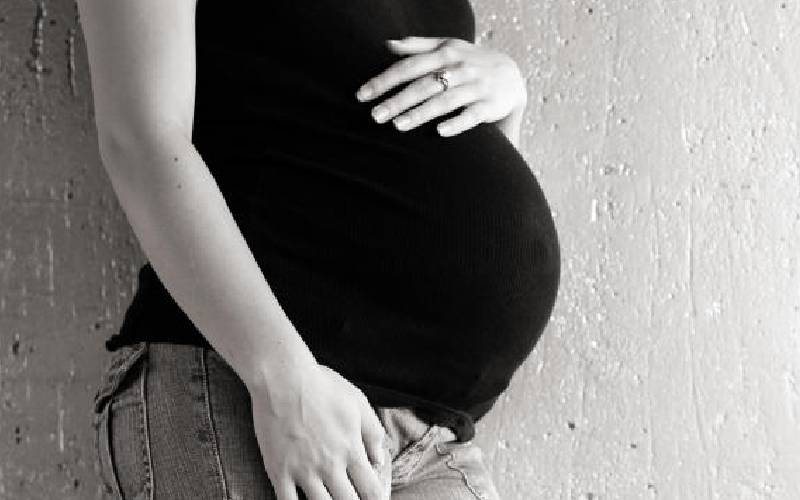
The Ministry of Health has updated its recommendation for Covid-19 vaccines for various segments of the population in an effort to reduce Covid-19 morbidity and mortality.
In a statement written by the Acting Director-General Dr Patrick Amoth, there is a need to continue providing guidance on vaccination of various segments of the population including pregnant women, children, and those who have completed their two doses of either Oxford/AstraZeneca, Moderna, Sinopharm vaccine or the single-shot Johnson and Johnson vaccine.
In its recommendation, pregnant women will be offered the mRNA vaccines which includes the Pfizer and Moderna vaccine at any stage of the pregnancy.
As per the new guidelines, pregnant women picking the jab should be vaccinated at their first antenatal clinic visit or at first contact with health services.
“Pregnant women who began vaccination with other types of Covid-19 vaccines, should complete vaccination using the same vaccine,” reads a section of a letter by Dr Amoth.
In the letter addressed to all county directors of health, the ministry recommends the use of the Pfizer vaccine in children above the age of 15 years to help protect against Covid-19. This follows continued evidence of an adverse effect of Covid-19 among this population.
Experts warn that “children are as likely to be infected with Covid-19 as adults” and vaccinating them can also help protect their family members who may not be eligible for vaccination.
For those who have been fully vaccinated with either of the two-shot or one-shot vaccines, they recommend an additional dose of either AstraZeneca, Moderna or Pfizer vaccines.
This additional dose they explain should be “administered 6 months after the completion of the primary series,” noted the letter.
They further explain that the same or different vaccine can be used for the additional dose.
In the event of an adverse reaction, after vaccination, the ministry of health advises that the individual should be switched to a different vaccine type. This can either be the mRNA- Pfizer or Moderna vaccine or the viral- vector – AstraZeneca vaccine to facilitate completion of the schedule as per the original timelines.
“If a serious adverse event occurs after Pfizer and Moderna administration, provide AstraZeneca for second dose 28 days after the initial dose,” said the acting director-general for health, Dr Patrick Amoth.
Similarly, in the event of an adverse reaction after receiving the AstraZeneca vaccine, the ministry advises on the need to provide either Pfizer or Moderna vaccines as the second dose “eight weeks after the initial shot.”
In the case of administration of Moderna vaccine as the first dose, AstraZeneca can be used as the second dose, twenty-eight days after the Moderna shot was administered.
The ministry began vaccination against Covid-19 in March 2021 as an additional measure against Covid-19 and its effects.
So far, Kenya has received a total of 23 million vaccines. The vaccines in circulation include Moderna, AstraZeneca, Pfizer, Johnson and Johnson and Sinopharm.
As of Saturday, a total of 9,534,806 vaccines had been administered across the country, out of which, 3,916,511 represented people who had fully been vaccinated and another 5,618,295 were partially vaccinated.
The proportion of fully vaccinated adults now is 14.4 per cent.
 The Standard Group Plc is a multi-media organization with investments in media
platforms spanning newspaper print operations, television, radio broadcasting,
digital and online services. The Standard Group is recognized as a leading
multi-media house in Kenya with a key influence in matters of national and
international interest.
The Standard Group Plc is a multi-media organization with investments in media
platforms spanning newspaper print operations, television, radio broadcasting,
digital and online services. The Standard Group is recognized as a leading
multi-media house in Kenya with a key influence in matters of national and
international interest.
 The Standard Group Plc is a multi-media organization with investments in media
platforms spanning newspaper print operations, television, radio broadcasting,
digital and online services. The Standard Group is recognized as a leading
multi-media house in Kenya with a key influence in matters of national and
international interest.
The Standard Group Plc is a multi-media organization with investments in media
platforms spanning newspaper print operations, television, radio broadcasting,
digital and online services. The Standard Group is recognized as a leading
multi-media house in Kenya with a key influence in matters of national and
international interest.










